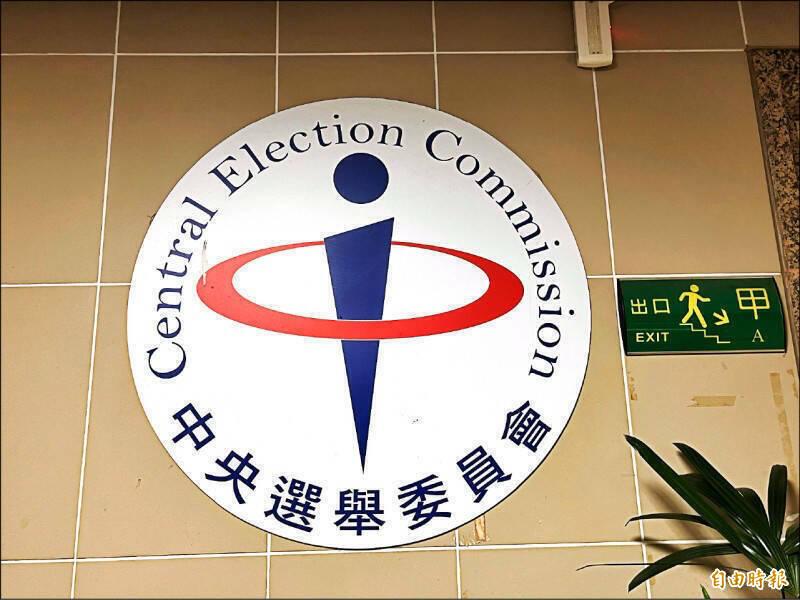Nineteen legislator recall cases passed an initial review and will enter the second-stage petition, while the nine cases that did not reach the threshold in this initial review will have another opportunity for supplementary submissions, the Central Election Commission (CEC) announced today.
The CEC said it has received 64 recall proposals, including 54 cases for lawmakers, one for a city or county mayor and another nine for city or county councilors.

Photo: Taipei Times file photo
The 19 cases that passed the threshold were all against Chinese Nationalist Party (KMT) legislators, and the nine cases that did not reach the threshold were against Democratic Progressive Party (DPP) legislators, people familiar with the matter said.
The 19 KMT lawmakers now facing the second stage of the recall process include KMT caucus whip Fu Kun-chi (傅崐萁), KMT caucus deputy secretary-general Wang Hung-wei (王鴻薇) and legislators Yeh Yuan-chih (葉元之), Yen Kuan-heng (顏寬恒) and Ma Wen-chun (馬文君), sources said.
Suspended Hsinchu Mayor Ann Kao (高虹安) is also said to be among those recall cases that passed the threshold.
The nine DPP lawmakers whose recall proposals failed to meet the first-stage threshold are Wu Pei-yi (吳沛憶), Su Chiao-hui (蘇巧慧), Chang Hung-lu (張宏陸), Wu Chi-ming (吳琪銘), Tsai Chi-chang (蔡其昌), Ho Hsin-chun (何欣純), Chen Kuan-ting (陳冠廷), Saidhai Tahovecahe (伍麗華) and Chen Ying (陳瑩), sources said.
By law, recall proposals must be reviewed by the Central Election Commission within 25 days, meaning that cases submitted on Feb. 3 must be reviewed by tomorrow.
If a proposal meets the threshold requirements, the campaign’s leading proponent collects the petition form from the commission within 10 days of receiving notice, the CEC said.
The recall process has three major stages, the CEC website said. The first stage requires signatures from one percent of total voters in the officials’ electoral district, the second is a petition that must be signed by at least 10 percent of total voters within 60 days and the third is a simple majority vote in which total turnout must be at least 25 percent of total voters in the district.

Chinese spouse and influencer Guan Guan’s (關關) residency permit has been revoked for repeatedly posting pro-China videos that threaten national security, the National Immigration Agency confirmed today. Guan Guan has said many controversial statements in her videos posted to Douyin (抖音), including “the red flag will soon be painted all over Taiwan” and “Taiwan is an inseparable part of China,” and expressing hope for expedited reunification. The agency last year received multiple reports alleging that Guan Guan had advocated for armed reunification. After verifying the reports, the agency last month issued a notice requiring her to appear and explain her actions. Guan

GIVE AND TAKE: Blood demand continues to rise each year, while fewer young donors are available due to the nation’s falling birthrate, a doctor said Blood donors can redeem points earned from donations to obtain limited edition Formosan black bear travel mugs, the Kaohsiung Blood Center said yesterday, as it announced a goal of stocking 20,000 units of blood prior to the Lunar New Year. The last month of the lunar year is National Blood Donation Month, when local centers seek to stockpile blood for use during the Lunar New Year holiday. The blood demand in southern Taiwan — including Tainan and Kaohsiung, as well as Chiayi, Pingtung, Penghu and Taitung counties — is about 2,000 units per day, the center said. The donation campaign aims to boost

The Kaohsiung Tourism Bureau audited six hotels in an effort to prevent price gouging ahead of Korean band BTS’ concert tour in the city scheduled for Nov. 19, 21 and 22 this year. The bureau on Friday said that the audits — conducted in response to allegations of unfair pricing posted on social media — found no wrongdoing. These establishments included the local branches of Chateau de Chine, Hotel Nikko, My Humble House, and Grand Hai Lai, it said, adding that the Consumer Protection Commission would have penalized price gougers had the accusations been substantiated. The bureau said the Tourism Development Act

BACK TO WINTER: A strong continental cold air mass would move south on Tuesday next week, bringing colder temperatures to northern and central Taiwan A tropical depression east of the Philippines could soon be upgraded to be the first tropical storm of this year, the Central Weather Administration (CWA) said yesterday, adding that the next cold air mass is forecast to arrive on Monday next week. CWA forecaster Cheng Jie-ren (鄭傑仁) said the first tropical depression of this year is over waters east of the Philippines, about 1,867km southeast of Oluanpi (鵝鑾鼻), and could strengthen into Tropical Storm Nokaen by early today. The system is moving slowly from northwest to north, and is expected to remain east of the Philippines with little chance of affecting Taiwan,